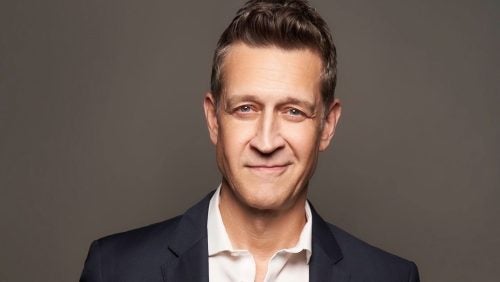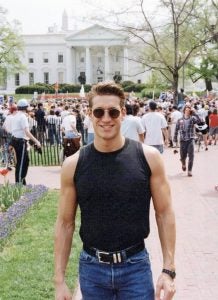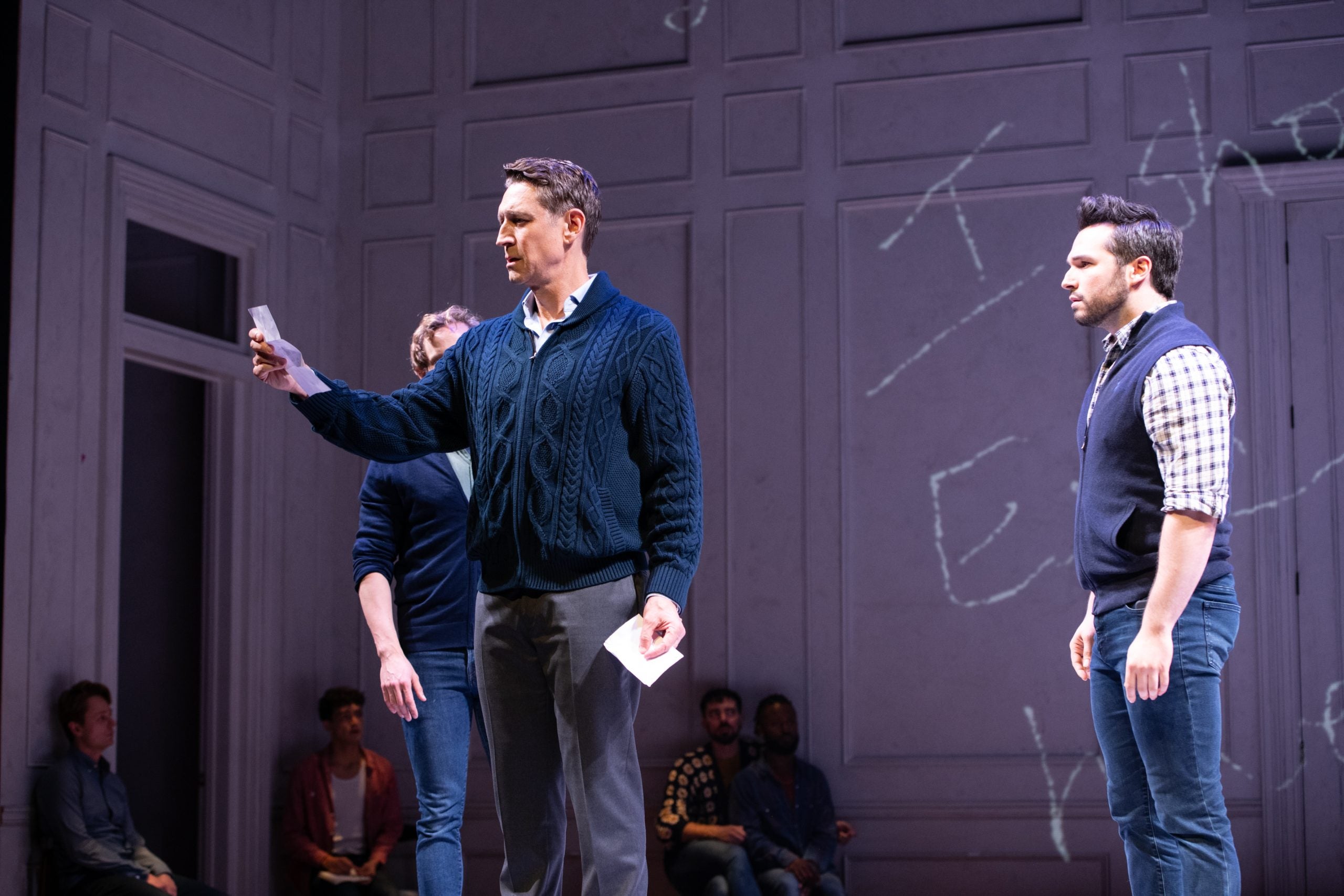Finding Advocacy in Art: Robert Gant, L’93, on the Journey from Lawyer to Actor
October 24, 2025

Robert Gant, L’93
Robert Gant, L’93, initially pursued a career in litigation, but found his calling on stage and screen.
“From my standpoint, the ultimate act of service is getting to tell stories through art,” says Gant, who took the leap from law to acting after earning his J.D. and later broke ground in the entertainment industry when he came out publicly in 2002.
But before he was an advocate for the LGBT community and actor with roles in popular television series such as Queer as Folk, 13 Reasons Why and The Fosters, Gant was a Georgetown Law student with a passion for the performing arts.
“I have a lot of memories from being here,” says Gant of his law school experience, which included starring roles in Georgetown Gilbert and Sullivan Society (GGSS) productions and attending the 1993 March on Washington for Lesbian, Gay, and Bi Equal Rights and Liberation during his final 3L semester. “It has been an amazing journey.”
Some 30 years after graduation, Gant is back in the Washington region for his role as Henry Wilcox in the two-part theatrical production The Inheritance, which examines the generational ripple effects of the AIDS crisis and is now playing at Round House Theatre in Bethesda, Md.
Between performances, we spoke with Gant about how his legal training influences his approach to acting, the Georgetown Law class that shaped him and his advice for students balancing legal studies and creative pursuits.
After graduating, you worked at Baker McKenzie in Los Angeles. What made you pursue acting full-time?
I was in the litigation department and had some idea that I was going to assuage my desire to be a part of [the entertainment industry] through entertainment law. I realized quickly that I would be working on behalf of people who were doing what they loved and watching that from afar. That thought was a little excruciating. I remember sitting in my office and watching people go back and forth, and thinking: Is this what I want my life to be? A month after I got there, they let me know they were closing the L.A. office. I decided to make the leap and go for the thing that had been my passion all my life.
What do you hope audiences take away from The Inheritance?
The show is set decades after the height of the AIDS crisis around the time of the 2016 election. It’s the story of three generations of gay men in New York City attempting to forge a future for themselves amid a turbulent America. I hope that folks will come away with a sense of the universality of our experience. The story is certainly told through an LGBTQ lens, but the messages are universal and very largely about culture. A big piece of The Inheritance is asking, what does the current generation owe to those who came before, and what do we owe to those who come after?
How does your legal background influence your approach to acting?

Gant attended the 1993 March on Washington during his 3L year.
I have found having a law degree to be universally applicable and helpful. The training of thought, the ability to argue any point — it just applies to everything. [In law school] you were constantly conditioned to be able to see a thing from the opposing vantage point. I’ve found that to be incredibly useful as an actor. Right now, I’m playing a character who is a very conservative billionaire, and so I definitely needed to draw from the ability to argue on behalf of this character. I had to really stand in the shoes of this man and love this character on some level to be able to argue on behalf of his way of seeing the world.
Do you have a favorite memory or experience from your time at Georgetown Law?
One that is really relevant for LGBT History Month in October is taking a class with Chai Feldblum, who taught the first course on sexual orientation in the law and wrote the first textbook on the subject. In class we were working from galleys of what would become that textbook. I remember all the cases so distinctly. Invariably, every single one ruled against LGBTQ individuals, and it was always based on two things: one was sodomy laws, which weren’t overturned until 2003 in Lawrence v. Texas, and the other was these vague notions of morality rooted in religion. I’m so grateful that I got to have that experience. It was a foundational time for rooting the legal framework on which the LGBTQ community would build our rights and freedoms.
What advice would you offer law students who are balancing a creative hobby or passion with their studies?
It is a tough balance to strike, because you put so much into getting to this place. Where possible, really work to find balance. GGSS helped me to find some of that balance in the midst of all the intensity of the Georgetown experience. Find a way to allow yourself, even in a small way, to engage in that creativity. Lawyers can have that driver personality — “I must achieve more, I have to do more” — but when I’ve let myself say yes to [creativity], even when I was sure it wouldn’t be of benefit, it invariably made my life richer and more enjoyable.
Have you ever played a lawyer?
It actually took many years for me to play a lawyer, which was maddening, because I felt like: I have my law degree. How have I not played a lawyer? I got to play my first attorney on The Young and the Restless [starting in 2013] — which was kind of hilarious, to be in a soap opera courtroom, playing an attorney.
The Inheritance is playing at Round House Theatre in Bethesda, Md. through November 2.

Gant (left) plays Henry Wilcox in “The Inheritance.”